The idea of dividing books into genres is, forgive the pun, a relatively novel approach, one linked to marketing and increased literacy rates in the 19th and 20th centuries. But genres had to start somewhere, and many genres can trace their origins to particular works of fiction that seem to have set the template for all that would come after.
Of course, pinning any movement to a single point of origin and saying, “Here is where it all began” is a fraught undertaking, at best, and each genre has long roots in literary history that can be traced back to ancient works. Still, these 10 novels are widely credited as the beginnings of what would become several literary genres that still exist today.
The First Romance Novel

Pamela, or Virtue Rewarded
Though it bears many differences from a modern romance novel, this epistolary work from 1740, widely considered one of the first novels in the English language, is nonetheless also seen as among the earliest forebears of the steamy romances we know today.
A sensation when it was first published, Pamela shocked readers with its depiction of an assertive working-class heroine, even while also operating as a form of prescriptive “conduct literature” about courtship, sexual politics, and the virtues of marriage.
The First Gothic/Horror Novel
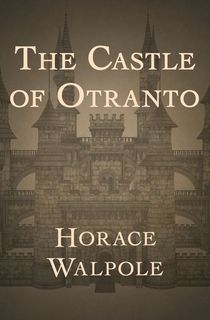
The Castle of Otranto
Originally published pseudonymously in 1764, Horace Walpole’s classic became an instant sensation and is widely considered the first gothic novel, a genre that eventually gave rise to our modern horror stories and influenced authors from Edgar Allan Poe to Mary Shelley and beyond.
It’s a tale filled with gloomy castles, doomed romance, supernatural horror, and so much more, opening with a bizarre and striking image that sets the stage for countless novels of horror and the supernatural that will follow.
The First Mystery Novel
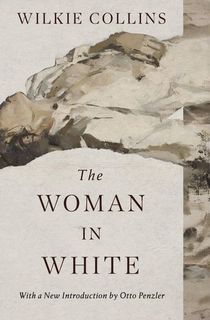
The Woman in White
There have been many claims as to who created the first mystery novel or work of detective fiction, but Wilkie Collins’ “sensation novel” The Woman in White is definitely a strong early claimant to that title.
Besides an often-chilling mystery, this classic from 1859 is also an impassioned plea for justice in Victorian marriage laws which, at the time, were vastly unequal to women, a theme which plays a central role in the novel’s spine-tingling mystery. Collins wrote plenty of other mysterious and sometimes ghostly tales, but this is his most famous.
The First Thriller Novel

The Spy
Probably best known as the author of Last of the Mohicans, James Fenimore Cooper first made his name as a writer of important popular fiction with his second novel, arguably the first espionage thriller.
Set during the American Revolution, The Spy: a Tale of the Neutral Ground was inspired in part by the experiences of Cooper’s real-life friend John Jay and is set in a home that occupies the eponymous neutral ground between the British and American forces. Filled with false identities and dangerous wartime stratagems, this 1821 novel not only cemented Cooper as a major writer of the time but also helped to shape all espionage thrillers to come.
The First Fantasy Novel
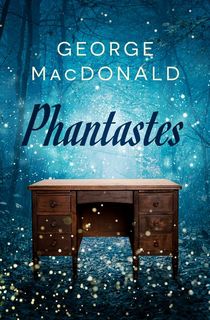
Phantastes
Before Tolkien, before C.S. Lewis, there was this groundbreaking novel by Scottish writer George MacDonald, which helped give rise to the modern fantasy genre.
Described by its author as “a sort of fairy tale for grown people,” this story of a young man who travels to Fairy Land after an encounter with an antique desk he inherited from his father, was a disappointment upon its release, but was championed by C.S. Lewis, who modeled his own classic Chronicles of Narnia on some of its ideas and referred to MacDonald as his “master.”
The First Science Fiction Novel
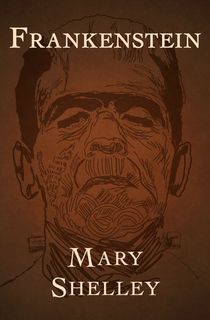
Frankenstein
In 1818, Mary Shelley and her friends challenged one another to write original stories—an exercise that resulted in one of the most famous tales of all time, Frankenstein.
Often lauded as the first science fiction novel, Shelley has written that the idea came to her in a dream: "I saw the hideous phantasm of a man stretched out, and then, on the working of some powerful engine, show signs of life, and stir with an uneasy, half vital motion. Frightful must it be; for supremely frightful would be the effect of any human endeavour to mock the stupendous mechanism of the Creator of the world."
The First Historical Novel

Castle Rackrent
No less a luminary than William Butler Yeats declared Maria Edgeworth’s 1800 novel “one of the most inspired chronicles written in English.” In telling the story of four generations of heirs to the eponymous castle, this rousing and wide-ranging novel has been regarded as not just the first novel of historical fiction, but also the first regional novel written in English, and the first of what became known in England as “Big House” novels, following the lives of a vast cast of characters who lived within the sprawling country manors of that nation.
It provided an influence on everyone from Sir Walter Scott, who corresponded with the author while she was alive, to F. Scott Fitzgerald, who makes reference to the novel in The Great Gatsby.
The First Western Novel
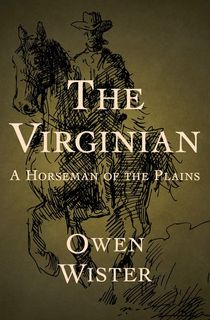
The Virginian
Adapted into no less than five films and a TV series, Owen Wister’s 1902 novel is widely considered the first “real” Western, which romanticized the days of the Wild West and the American frontier.
As such, The Virginian introduces us to a quintessential Western hero in the form of its stoic, good-hearted lead character, who is never given an official name in the narrative and is simply referred to as the Virginian. The archetypal cowboy, the Virginian is an independent and fair-minded man of principal who exemplifies the life and the romance of the Wild West.
The First Bildungsroman

Wilhelm Meister's Apprenticeship
Sometimes simply called the “coming of age” narrative, the Bildungsroman literary genre takes its name from a portmanteau of the German words for “education” and “novel.”
Arguably the earliest example of this form is this philosophical work by Johann Wolfgang Goethe, which follows the eponymous Wilhelm Meister as he tries to escape his bourgeois life by joining a theatrical troupe which, among other things, performs the plays of William Shakespeare. Though it is often considered the first novel of its kind, it is notable that Goethe’s tale actually paints the “coming of age” of its protagonist in a frequently ironic light.
The First Dystopian Novel
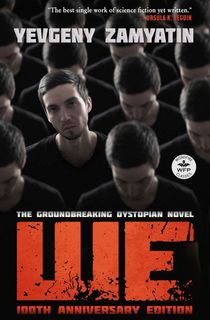
We
Utopian fiction has existed for centuries, but hasn’t exactly caught on as well as its less-hopeful counterpart in recent years. By contrast, the earliest work of dystopian fiction is often considered this Russian novel that was written in 1920 and 1921, depicting a unified and oppressive world government that will probably be familiar to anyone who has read a work of dystopian fiction written since.
Indeed, Aldous Huxley’s more famous Brave New World is said to have been influenced by this Russian classic, and George Orwell himself has said that his novel Nineteen Eighty-Four was also inspired by We.
Featured image via Daria Kraplak / Unsplash




